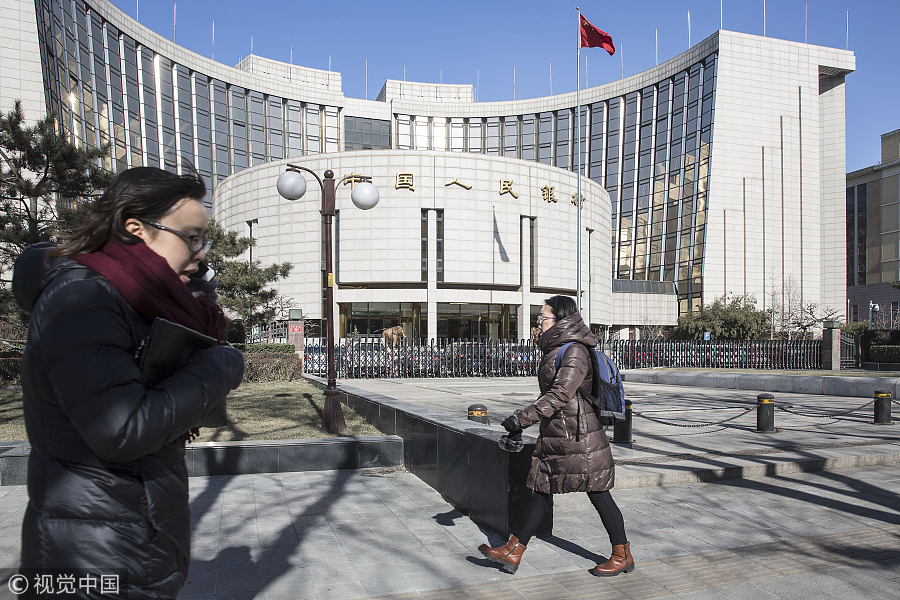Central bank to rein in risky State businesses


China's monetary authority set up its multitasking goals this year to better balance economic growth, financial deleveraging and risk prevention while maintaining a tough regulatory stance.
People's Bank of China, the central bank, kept the 2018 monetary policy tone as "prudent and neutral" in its monetary policy report released on Wednesday, pledging to control the total money supply and maintain reasonable credit growth while keeping its eye on the liquidity situation.
With the leveraging level high and the debt burden even higher for State-owned enterprises, the key task is to further enhance regulations on shadow banking activities and real estate financing, the central bank said, adding it also must regulate local governments' credit risks.
Considering China's current economic situation, "an easing monetary policy may lead to asset bubbles, financial fragility and polarization between the rich and the poor, while a slower growth of money supply could still support high-quality development of the real economy", it said.
The central bank plans to include interbank financing using negotiable certificates of deposit and green financing in the enhanced regulatory framework this year.
The central bank also will monitor a potential global inflation rebound and the withdrawal of major economies' quantitative easing policies.
Liu Ligang, chief China economist with Citigroup, said regulatory overhauls and the so-called macro prudential assessment implementation will keep China's monetary policy relatively tight in 2018, but the room for tighter monetary policy will be limited.
"The PBOC may delicately manage interbank liquidity to avoid spikes in interbank rates against a backdrop of tighter liquidity conditions due to financial deleveraging and expected rate hikes by the US Federal Reserve," said Zhao Yang, chief economist in China with Nomura Securities.
The country's yuan-denominated new loans surged to a record 2.9 trillion yuan ($460 billion) in January, climbing fivefold from 584.4 billion yuan in December, according to the central bank's data released on Monday.




































